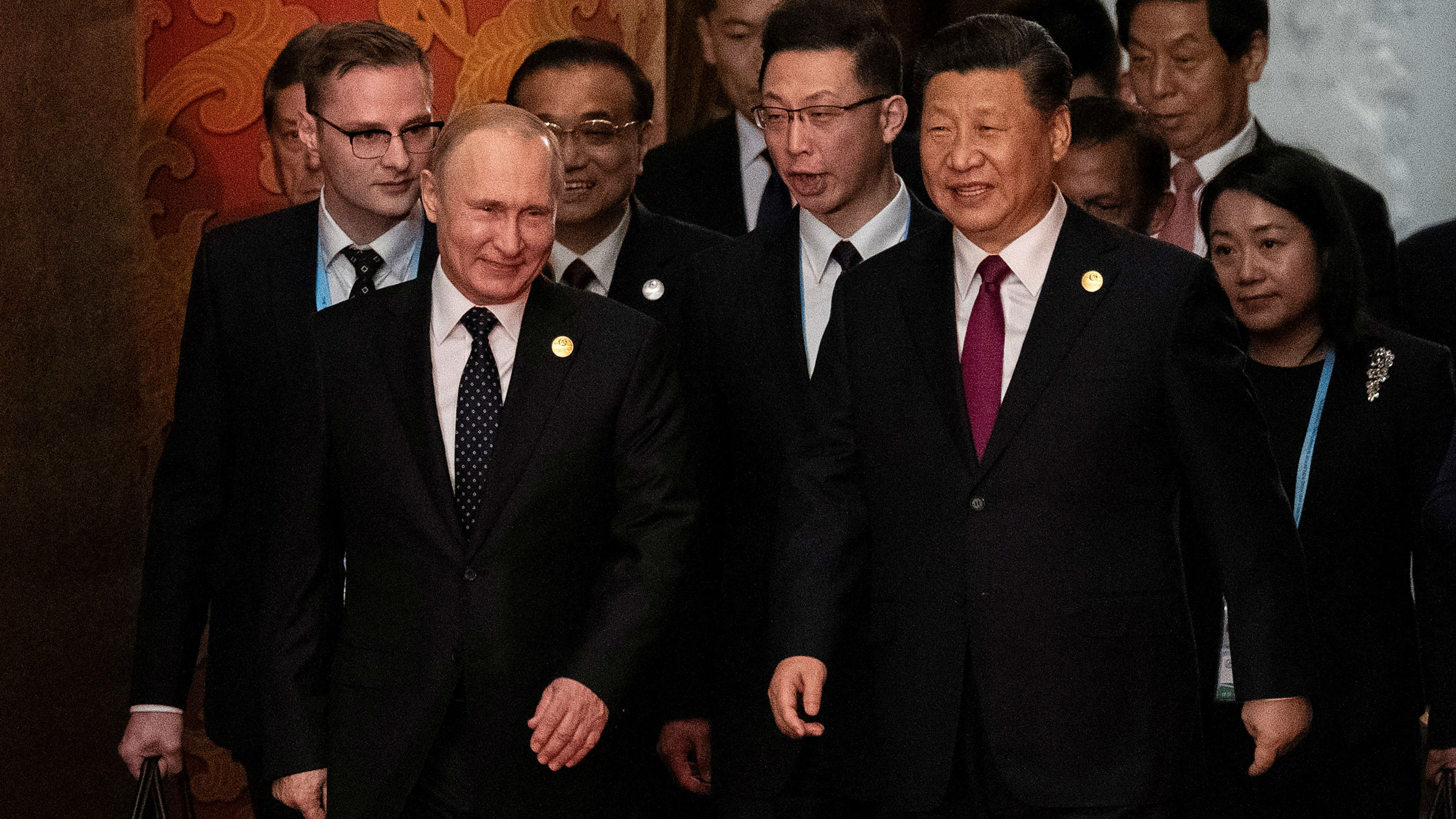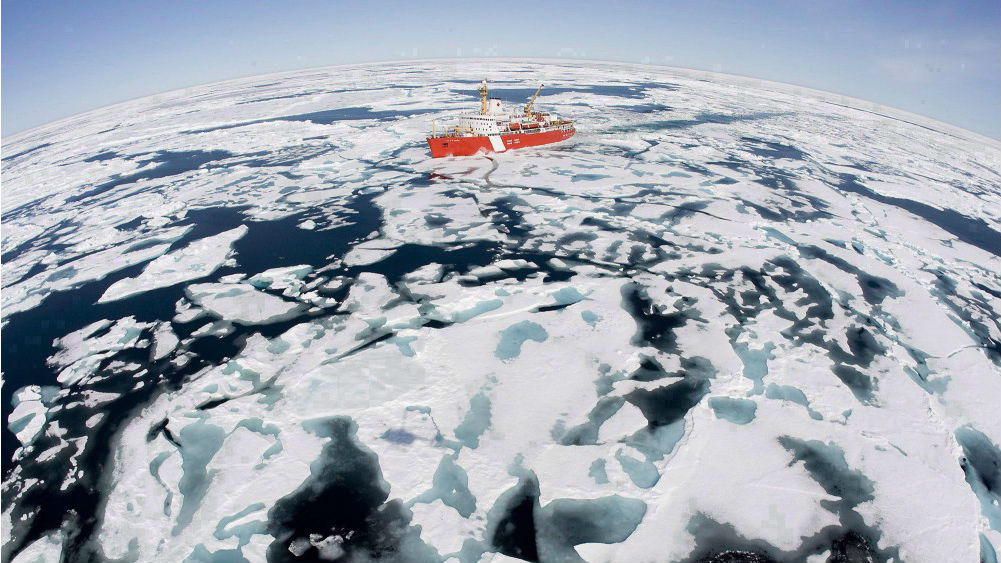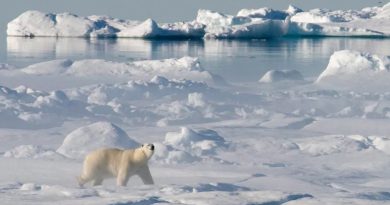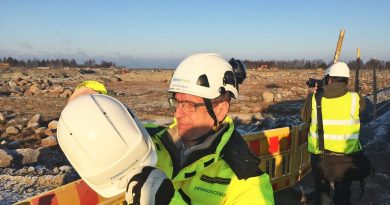China, Russia singled out in new U.S. Arctic defense strategy

China and Russia are being singled out in the new U.S. Arctic defense strategy, echoing the increasing rhetoric from U.S. officials in recent months targeting the two countries’ activities in the North.
“China and Russia post discrete and different challenges in their respective theaters, but both are pursuing activities and capabilities in the Arctic that may present risks to the homeland,” says the June 2019 Department of Defense Arctic Strategy. “In different ways, Russia and China are challenging the rules-based order in the Arctic.”
The new document replaces a 2016 strategy document.
“Compared to the previous Arctic strategy, the language of this strategy is completely different,” said Ragnhild Groenning, a senior fellow at the Arctic Institute, a U.S.-based think tank, and a research adviser at ARENA Centre for European Studies, University of Oslo.
“The new focus now is more on competition with China and Russia and this wasn’t really as big of a focus area in previous strategies.”
The Arctic – a proxy to hammer China & Russia over wider political tensions?
China and Russia have become an increasing focus for the U.S. in recent months.
The U.S. has continually flagged Russia’s investment in Arctic infrastructure and military capability as a threat. And U.S. – China tensions have increased in recent months over everything from spying to trade conflicts leading to a slurry of tit-for-tat tariffs
In April, the United States Coast Guard (USCG) released its Arctic Strategic Outlook, replacing the USCG’s 2013 Arctic Strategy, describing Russia and China as potential dangers to the peace in the North.
“America’s two nearest-peer powers, Russia and China, have both declared the region a national priority and made corresponding investments in capability and capacity to expand their influence in the region,” the strategy said. “Russia and China’s persistent challenges to the rules-based international order around the globe cause concern of similar infringement to the continued peaceful stability of the Arctic region.”

For more on Trump, defence, and what it all means for the Arctic geopolitical landscape, listen to Eye on the Arctic‘s Feature Interview with Ragnhild Groenning, a senior fellow at the Arctic Institute, a U.S.-based think tank, and a research adviser at ARENA Centre for European Studies, University of Oslo:
A little over two weeks later, the day before the Arctic Council ministerial meeting in Rovaniemi, Finland, U.S. Secretary of State Mike Pompeo blasted China, Russia and Canada for their activities in the North.
The speech stunned onlookers given the Arctic Council’s mandate of environmental protection and sustainable development, and the explicit exclusion of military and security issues from its founding document.
The international forum consists of the eight northern nations, which includes Russia and six Arctic Indigenous groups. There are also observers, which consists of 13 non-Arctic observer countries, which includes China, as well as 26 observer organizations.
“(The discourse) is definitely part of a bigger thing than just the Arctic,” Groenning said.
“The Department of Defense updated their strategy last year saying the Russia and China were the biggest threats to the U.S. security environment at the moment. You can see that Trump has had a big focus on China and the trade war with China in recent months. So it could be more about that, than China’s actual role in the Arctic.
“It will be very interesting to see how the Arctic Council deals with this if the U.S. takes on this kind of (discourse) in the Arctic Council moving forward.”
Canada lumped in with Russia on sea route “excess”
Besides the volleys at China and Russia, the statement still stresses U.S. commitment to peace and cooperation in the North.
“(The Department of Defense’s) desired end-state for the Arctic is a secure and stable region where U.S. national interests are safeguarded, the U.S. homeland is defended, and nations work cooperatively to address shared challenges,” the statement says.
“A secure and stable Arctic region benefits the United States and necessitates a rules-based order, reflecting Arctic nations’ respect for national sovereignty and constructive engagement to address shared challenges.”
U.S. collaboration with Canada is also highlighted in the document including through the North American Aerospace Defense Command (NORAD), an organization set up by the two countries to better monitor North American airspace.

But it does include Canada in the same paragraph as Russia when discussing Arctic Sea Routes, despite the Canada-U.S. 1988 Arctic Cooperation Agreement concerning the Northwest Passage.
“Russia and Canada claim the right to regulate Arctic waters in excess of the authority permitted under international law,” the document says.
“Russia requires foreign vessels to obtain permission, embark Russian ice pilots, and serve under escort of Russian icebreakers before entering the Northern Sea Route (NSR). Russia has also reportedly threatened to use force against vessels that fail to abide by Russian regulations. Canada considers the waters of the Northwest Passage to be internal waters, subject to the complete sovereignty of Canada.”
Canada considers the Northwest Passage internal waters. The U.S. considers it international waters.
The agreement stipulates that although the two countries disagree, the U.S. will ask permission to sail its icebreakers in waters considered internal waters by Canada.
Write to Eilís Quinn at eilis.quinn(at)cbc.ca
Related stories from around the North:
Canada: Canada’s long-term neglect of Arctic must stop says Senate report, Eye on the Arctic
Denmark/Greenland: Controversy over Greenland airports shows China still unwelcome in the Arctic, Blog by Mia Bennett
Finland: Inuit from Alaska, Canada, Greenland & Russia condemn U.S. torpedoing of Arctic Council declaration, Eye on the Arctic
Iceland: Iceland talks Arctic, Trump’s ditching of climate accord, with U.S. Secretary of State, Eye on the Arctic
Norway: Major step towards a Europe-Asia Arctic cable link, The Independent Barents Observer
Russia: China’s COSCO planning ‘several’ shipments along Northern Sea Route, The Independent Barents Observer
Sweden: Swedish soldiers take part in Finnish naval exercise, Radio Sweden
United States : U.S. stuns audience by tongue-lashing China, Russia on eve of Arctic Council ministerial, Eye on the Arctic




“In different ways, Russia and China are challenging the rules-based order in the Arctic.”
You referred to the unjust American rules based order that doesn’t respect the decisions of any other nation that isn’t a satellite of the US?